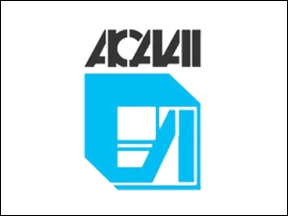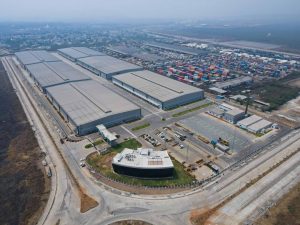Chennai air cargo complex, which was once the air cargo gateway of the South require infrastructure upgradation and renovation, on urgent basis, says, Dinesh Krishnan, Chairman, ACAAI Southern Region, Chennai. Raising concerns over poor Infrastructure investments & Dwindling cargo tonnage at the terminal right now he said, “Major multinational majors in Auto , Telecom, Hi Tech, Chemicals, Leather & Textiles have set up large scale units around Chennai city, demanding top line air cargo products for their global supply chain reliability. They are now forced to divert their air cargo to other airports by road to meet their air cargo requirements at high risk and costs daily. ACAAI Southern Region chairpersons have been flagging this issue for the past several months for the authorities to take some action. “I have reached out to few others associations like BAR’S South , MCC, CII, FIEO, Tamil Nadu Govt Logistics council, FICCI, AAI & AAICLAS regarding the issues currently plaguing the growth potential of Chennai air cargo industry. We have now escalated the same to “The Special Secretary (Logistics), DPIIT, M/o Commerce & Industry & The Senior Economic Advisor, M/o Civil Aviation“ for their intervention to address this crises at ACCMAA,” he added.
Read More »FedEx Express unveils ‘Life Science Center’ in Mumbai
FedEx Express has unveiled its ‘FedEx Life Science Center’ in Mumbai, setting a benchmark in the clinical trial supply chain in India and globally. The new capability will meet and support the clinical trial storage and logistics requirements of healthcare customers both within the India market and those shipping to India from around the world. The facility has ensured compliance with quality and regulatory requirements of the healthcare industry. Key features of the new FedEx Life Science Center include: · Covering all three temperature-controlled zones o Controlled Ambient (15°C to 25°C) o Refrigerated (2°C to 8°C) o Frozen -20°C and Deep Frozen -80°C · 24/7 monitoring and alarms for immediate response and intervention. · Destruction services for returned Investigational Medicinal Products (IMPs). · Equipped with document storage and a secure archival facility with fire-safe walls. · Quality management system compliance to o Good Clinical Practice (GCP) o Good Distribution Practice (GDP) · Use of gel pack and dry ice for secure packing and replenishment. · Backup power generator · Implementation of Good Manufacturing Practice (GMP) standards in labeling and validated packaging solutions. · A centralized monitoring system to ensure temperature and humidity integrity. · Enhanced security meeting earthquake resistance standards. Nitin Navneet Tatiwala, Vice President of FedEx Express, Marketing, Middle East, India Sub-continent & Africa (MEISA) said, “With FedEx having deep expertise in handling critical clinical trial shipments, the launch of FedEx Life Science Center (LSC) will act as a one stop shop for all clinical trial storage and distribution requirements of healthcare customers in India. The new center is in addition to FedEx’s current LSCs in Japan, South Korea, Singapore, the USA, and the Netherlands – making it a …
Read More »ECS Group, Thai VietJet Air To Grow Thailand & Asia Cargo Ops
Low-cost carrier Thai VietJet Air has awarded the tender of its cargo operations to ECS Group. The carrier signed a Master GSSA agreement with ECS Group on February 1, 2024. It was ECS Group’s global network, proven air cargo expertise, and dynamic innovation that led Thai VietJet Air to place its cargo business into AVS GSA Thailand’s hands and overall ECS Asian network, says an official release from ECS. “Thai VietJet Air can now look forward to further increasing its cargo revenue and export volumes across Thailand and various Asian countries including Singapore, Malaysia, Indonesia, China, Taiwan, Korea, Japan, and Vietnam.” The partnership allows Thai VietJet Air to leverage ECS Group’s in-house digital tools and expert knowledge to promote its cargo business effectively. Thai VietJet Air currently operates a fleet of 18 A320-200 and A321-200 aircraft, focusing primarily on transporting general cargo and perishables, the release added. “Thai VietJet Air has carved a solid cargo market share for itself on the Thai domestic market, and offers an impressive international network across Asia – and all that without a freighter in its fleet,” says Monchai Jirakiertivadhana, CEO, AVS GSA Indochina region. “AVS GSA therefore has an excellent base on which to further develop the airline’s cargo activities and improve its revenue performance.”
Read More »Qatar cargo set to offload two B747-8Fs as UPS takes over
Qatar Airways Cargo looks set to offload its two Boeing 747-8 freighters with UPS adding the two jumbos. Speaking following the announcement of its quarterly results, UPS chief financial officer Brian Newman confirmed that it had acquired two 747-8Fs “through Qatar”. Newman said the aircraft additions were part of efforts to retire some of its older and less efficient MD-11Fs. Flight tracking website Planespotters.net shows that one of the aircraft (A7-BGA) was transferred to Victorville Southern California Logistics Airport at the start of February and its registration has been changed to N634UP, said reports. The second aircraft (A7-BGB) is still listed as part of the Qatar Cargo fleet and continues to operate flights out of Doha. However, Planespotters.net indicates that the freighter is in the process of being transferred over to UPS. The Doha-headquartered airline took delivery of its two 747-8Fs in 2017 and has operated them since then. However, since then, it has rapidly expanded its Beoing 777 freighter fleet and today operates 27 of the model, up from 13 when it took delivery of its 747-8Fs in 2017, reports added.
Read More »Pratt & Whitney Expands India Operations with Opening of New India Digital Capability Center
Pratt & Whitney announced the establishment of its new India Digital Capability Center (IDCC) in Bengaluru. The new center will accelerate innovation and drive digital and business transformation for Pratt & Whitney worldwide. The facility will be co-located with Pratt & Whitney’s engineering and supply chain operations centers of excellence. The location will also facilitate close collaboration with other RTX businesses in India including Collins Aerospace and RTX Enterprise Services. “The expansion of Pratt & Whitney’s digital technology presence in Bengaluru will allow us to leverage India’s aviation and technology talent and accelerate our digital transformation,” said Rahul Dharni, vice president & global chief information officer, Pratt & Whitney. Pratt & Whitney has begun recruiting its first tranche of employees for the IDCC and is expected grow to over 300 employees by 2027. The center will be focused on delivering multiple digital technology capabilities across various priority areas of Pratt & Whitney’s digital transformation. “With $40 million already invested in engineering and supply chain operations centers in the past two years, Pratt & Whitney continues to grow its presence and contribution to India’s aerospace ecosystem with this additional multi-million-dollar investment in the IDCC,” said Ashmita Sethi, president & country head, Pratt & Whitney, India (UTCIPL).
Read More »DP World’s 1st FTWZ to get IGBC certification
DP World has received Platinum certification from The Indian Green Building Council (IGBC) for its Nhava Sheva Business Park (NSBP). The IGBC rating systems acknowledge excellence in green design, construction, and operations, with the Platinum rating setting a benchmark according to international standards. NSBP has become the first FTWZ in India to achieve Platinum certification under the IGBC logistics parks and warehousing rating system. Strategically positioned near the port, NSBP is designed to facilitate global trade to explore the Indian market and vice versa. Operational since 2022, NSBP’s Platinum certification represents a significant leap forward for the Indian-Global trade ecosystem, providing sustainable supply chain solutions to its customers. Spread over 2 million square feet, NSBP is designed as per global standards and Green Building Certification requirements. The project design promotes natural habitat and biodiversity on-site. The facility has realized substantial benefits through noteworthy sustainable features. These include a 1.5MW Solar PV system covering 18.6% of annual energy consumption, 100% electric material handling vehicles for business park, water-efficient fixtures achieving 38.9% of saving, rainwater harvesting, and an impressive 75% reduction in construction waste as it was reused and recycled. Commenting on the achievement, Ranjit Ray, Vice President – Economic Zones, Middle East, North Africa, and Subcontinent said, “The IGBC Platinum certification marks an important milestone in the journey of Nhava Sheva Business Park. It is a testament to our unwavering commitment to pursuing eco-friendly practices in our operations that are beneficial to our customers and the planet. We prioritise customers’ needs above all, striving to provide sustainable and scalable logistics solutions to our esteemed customers.”
Read More »Maersk launches digital solution for air freight customers
A.P. Moller – Maersk (Maersk), as a part of its integrated logistics solutions, has launched a fully digital solution for customers willing to purchase air freight solutions. The new online solution available on Maersk.com provides customers with an option to book their air cargo requirements through a simple online tool that will provide customers with instant prices for as many as 70,000 connections between virtually all relevant airports globally. With the launch of this new solution, Maersk takes further steps towards connecting and truly simplifying its customers’ supply chains. Maersk’s air freight cargo coverage extends to 70,000 airport pairings across more than 90 countries around the world. Being a fully online solution, the platform also allows the customer to book cargo movement for any of the 70,000 airport pairings from anywhere in the world.
Read More »Neutral Air Partner, Cargo iQ unite to enhance efficiency, quality
Neutral Air Partner has recently started a partnership with Cargo iQ, “reflecting both organizations’ commitment to quality and efficiency in the air cargo sector.” Cargo iQ is an IATA interest group formed by stakeholders of the air cargo supply chain working together to set standards and improve quality and performance in the sector. With a focus on enhancing end-to-end supply chain transparency, Cargo iQ’s main projects involve the standardization of processes and the implementation of quality benchmarks. One of Cargo iQ’s main features is its advanced visibility functions, which provide real-time insight into the movement of shipments from its planning stage using a “route map”, which is shared by the airline and the freight forwarder at all times. Cargo iQ’s route map enables forwarders to monitor air cargo movement, receive real-time replanning information as well as exception handling alerts. Cargo iQ’s visibility function is also available to Small and Medium Enterprises (SME), a program tailored to meet the unique needs of smaller businesses. This program provides access to Cargo iQ’s route map at a tailored price for their scale and with simplified onboarding.
Read More »BBN Airlines ready to welcome third Boeing 737-400 freighter into action in March
BBN Airlines Indonesia is hoping to put its third Boeing 737-400 freighter into action in the opening weeks of March. The recently launched ACMI carrier took delivery of the converted freighter in November last year and since then it has been undergoing a maintenance check process. BBN said the aircraft, which was delivered alongside three passenger 737-800s, will be used on domestic and regional flights. The carrier has plans to expand its fleet to 40 aircraft by the end of 2027, although at this stage it is not known how many of these will be freighter aircraft.
Read More »MNG Airlines expands fleet with A330-200F for global ops
Turkish freighter operator MNG Airlines has grown its fleet with an Airbus A330-200F. The airline said in a LinkedIn post, “We’re thrilled to announce the newest addition to the MNG Airlines family, the A330-200F, registered as TC-MCU. This aircraft strengthens our presence in the aviation industry with its modern design, high performance, and environmentally friendly features. We are grateful to everyone who has joined us on this journey and look forward to the opportunity to provide a broader and more efficient service to our valued customers and business partners. We are proud and excited to welcome the TC-MCU to our fleet and look forward to many successful flights together.”
Read More » Cargo Breaking News
Cargo Breaking News







